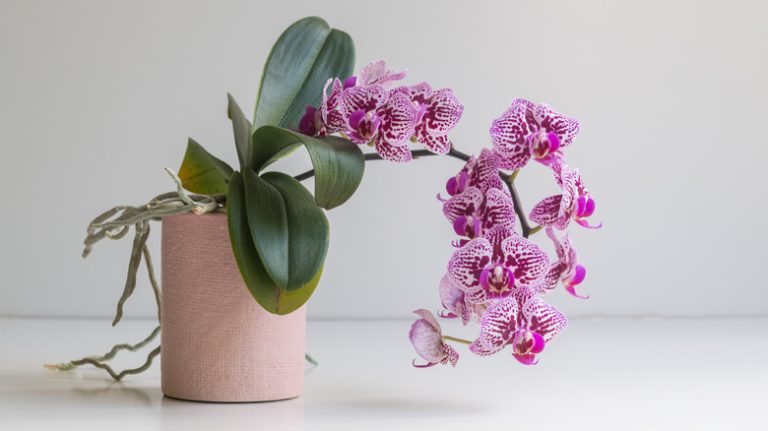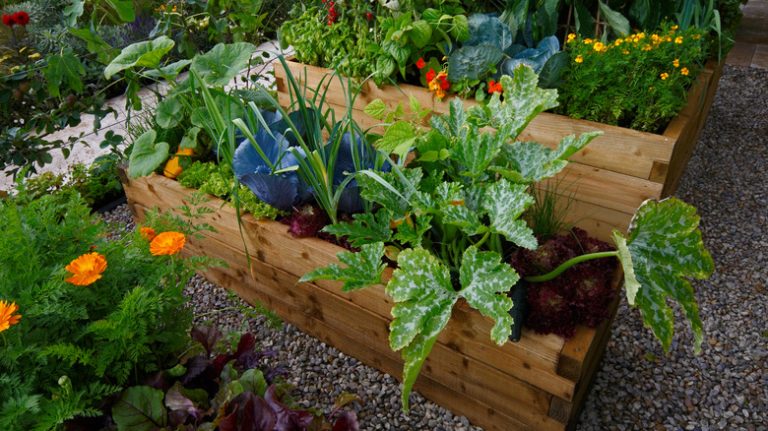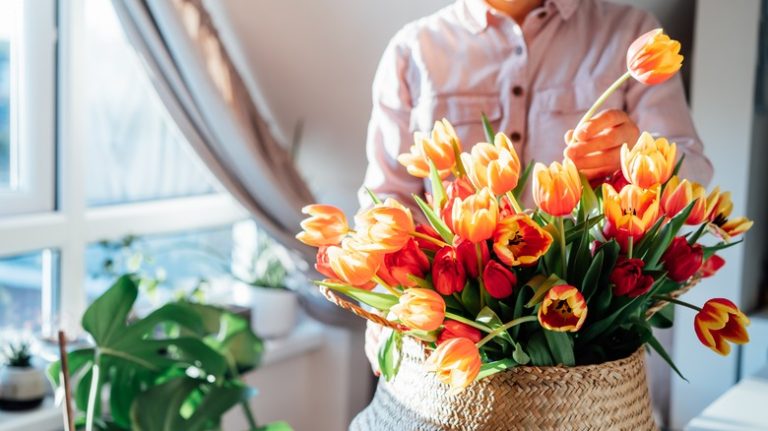Perhaps no scent captures the “vibe” of spring better than fresh peony blossoms. For many, peonies may evoke memories of playing in grandma’s garden, sipping tea on a shady porch, or enjoying a romantic dance at a summer wedding. In perfumes, peony oils and extracts are often used to provide a fresh, calming, and uplifting note, similar to rose petals or gardenias. Even outside of the perfumery trade, fresh peony blooms are prized for their strikingly soft and sweet scent that can quickly fill a room or float across the garden. If you’re hoping to successfully grow peonies and give your garden a fresh and fragrant boost this year, some of the most strongly scented peony varieties include Duchesse de Nemours, Hermione, Philomele, and Cora Stubbs.
But believe it or not, not all peonies have the same fragrance or scent concentration. Their bright colors can even be deceiving, leading you to expect a fresh burst but actually giving you nothing at all. Scent profiles for peonies can range from powerfully fresh to soft and sweet — or even downright rotten. These are the best varieties to plant if you want a colorful and fragrant peony garden and some stinky hybrids to beware of.
These peonies will bring a delightful scent
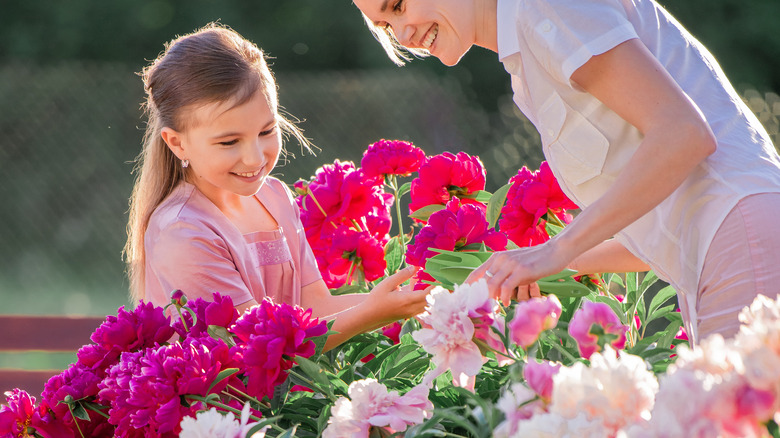
There are dozens of highly fragranced peony varieties, but most will have double petals and either be pink, white, or red. For fragrant white peonies, look to Festiva Maxima, Moonstone, White Frost, or the coveted Duchesse de Nemours. Seashell and Cora Stubbs are some of the best pink varieties for fragrance, while Burma Ruby and Postilion feature bright red-toned blooms. All of these peonies will emit a strong, romantic floral scent that is often described as perfume-like. Because they have such a distinct aroma, these peonies are best for growing in large outdoor spaces, as they may be too overpowering for a bouquet or indoor arrangement.
In addition to very strongly fragranced peonies, there are a multitude of moderate-to-lightly scented peonies. Peonies in this category come in a wider range of colors and are less likely to overpower the room with their scent, making them perfect for fresh bouquets. In the garden, you may have to lean a little closer to appreciate the complex scent of these beauties, but they’ll still emit a soft, floral fragrance that floats through the garden. For lightly scented white blooms, try Bowl of Cream or Laura Dessert. My Love and Sarah Bernhardt offer luscious pink flowers, while Red Charm and Red Grace produce vibrant red. You can also find lightly scented peonies in yellow, such as Garden Treasure or Prairie Charm.
Keep your nose away from these peonies
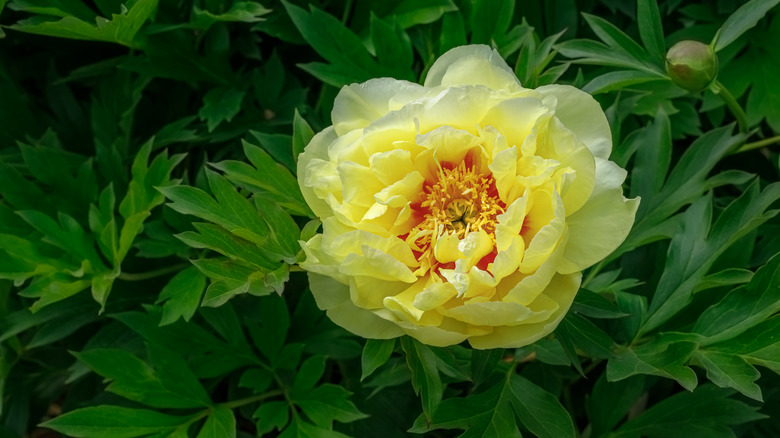
While many peonies smell like a delightful spring day at grandma’s, others can smell quite strongly of sweaty gym socks and rotting fish. These stinky odors still attract pollinating insects but aren’t so appealing to humans. Unpleasant scents are generally more common in hybrid varieties. The blooms of Coral Charm, Coral Supreme, Coral Sunset, Bartzella, and Lemon Chiffon look just as beautiful as any other peony, but be careful where you plant them in your garden, as they tend to give off an offensive odor. You’ll also want to avoid using these peonies in floral arrangements or bridal bouquets.
At the end of the day, the right peony variety for you is a matter of personal preference. If you’re worried about accidentally over-perfuming your garden, there are plenty of lightly fragranced and unscented varieties that can still brighten up your flower garden without overwhelming your olfactory senses. Don’t be afraid to mix and match varieties, planting highly fragrant blooms near odorous or unscented ones; a delicious Duchesse de Nemours can work wonders to mask the odor of a nearby Coral Charm while complementing its visual beauty.

